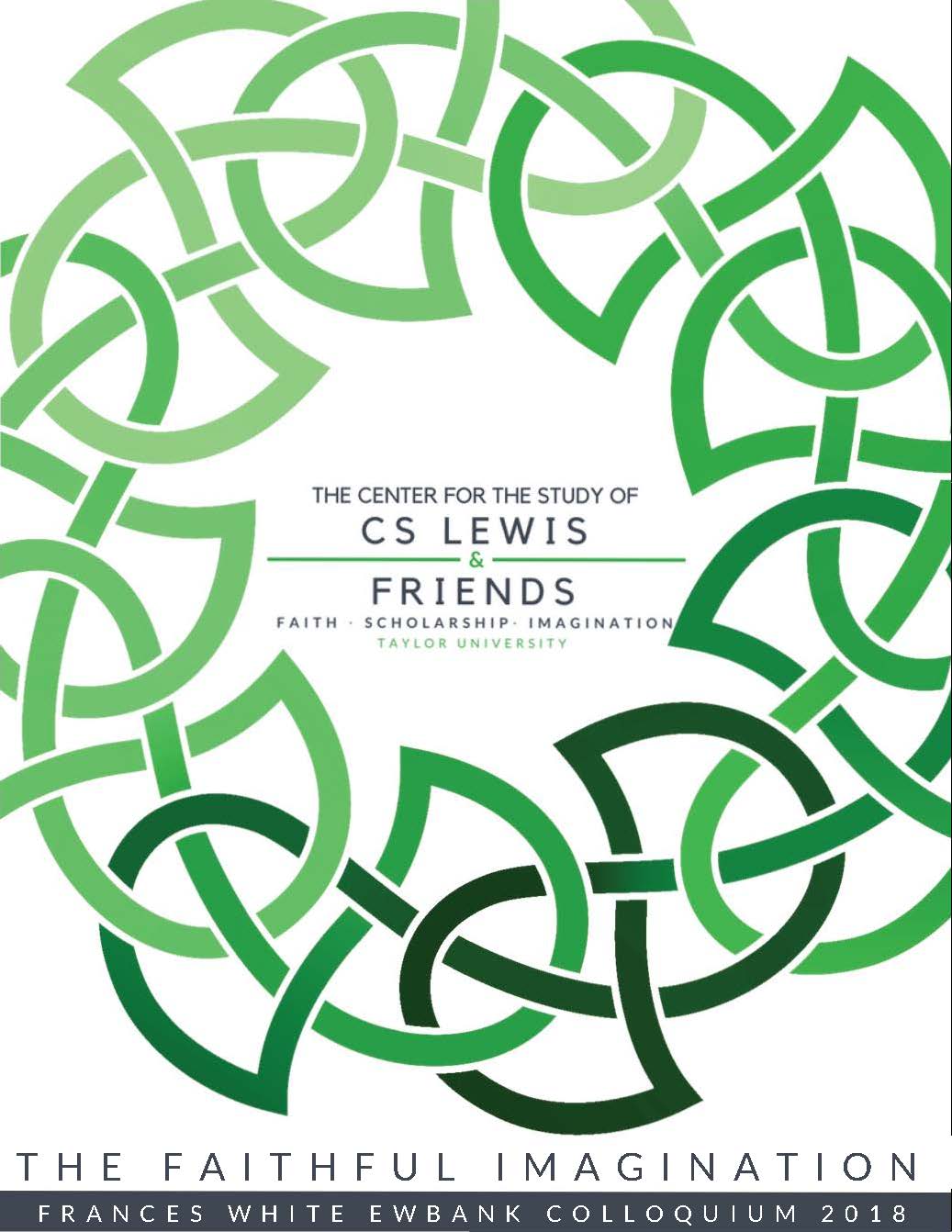Event Title
Concurrent Paper Session 3A: George MacDonald's Imagination
Location
Euler 062/063
Start Date
1-6-2018 10:45 AM
Description
"Warming the Wintry Heart: Redemptive Storytelling in 'Rime of the Ancient Mariner' and Adela Cathcart" - Abby Palmisano
In “The Friend,” Coleridge observes that “man sallies forth into nature…to discover the originals of the forms presented to him in his own mind.” George MacDonald, too, remarks on the inherent connection between nature and the mind, stating, “the world around [the individual] is an outlined figuration of the condition of his mind.” Despite this connection, the unfortunate human tendency is to place “nature in antithesis with the mind”; such an error is fatal since, as M. H. Abrams expressed, Coleridge “repeatedly describes all division as death dealing.” This paradoxical relationship between the mind and nature (and its resulting “death dealing”) is fictionalized in “Rime of the Ancient Mariner” and Adela Cathcart. Caught in an inner state of winter that mirrors the wintry worlds around them— all the while isolating themselves from the world—Adela wishes for death and the Mariner kills an innocent albatross in an act of self-sufficiency. It is storytelling that becomes “the mediatress between, and reconciler of, nature and man.” The stories told bring a spiritual dignity to suffering and awaken the dormant “esemplastic” imagination of the listener, thus melting the wintry heart.
"Teaching Phantastes to Today's Students" - John Pennington
George MacDonald’s reputation generally—and Phantastes’s reputation specifically—owe a great deal to Lewis, who famously said that the fantasy novel “baptize[d]” his imagination and that MacDonald was the single most influence on him. “I have never concealed the fact,” admits Lewis, “that I regarded him as my master; indeed I fancy I have never written a book in which I did not quote from him. But it has not seemed to me that those who have received my books kindly take even now sufficient notice of the affiliation.” Lewis’s comments have an ironic ring to them: as popular as Lewis is today, even he, it seems, has not been able to translate his love of Phantastes to contemporary students. I was determined to discover why students struggled and still struggle with
Phantastes so I could address those issues. My talk will focus on the creation of a critical, annotated edition of Phantastes (co-edited with Roderick McGillis) designed to address students’ concerns. My talk will highlight the impediments today’s students have when reading Phantastes and how the critical edition attempts to circumvent those obstacles and rehabilitate the fantasy for a contemporary readership.
George MacDonald’s reputation generally—and Phantastes’s reputation specifically—owe a great deal to Lewis, who famously said that the fantasy novel “baptize[d]” his imagination and that MacDonald was the single most influence on him. “I have never concealed the fact,” admits Lewis, “that I regarded him as my master; indeed I fancy I have never written a book in which I did not quote from him. But it has not seemed to me that those who have received my books kindly take even now sufficient notice of the affiliation.” Lewis’s comments have an ironic ring to them: as popular as Lewis is today, even he, it seems, has not been able to translate his love of Phantastes to contemporary students. I was determined to discover why students struggled and still struggle with
Phantastes so I could address those issues. My talk will focus on the creation of a critical, annotated edition of Phantastes (co-edited with Roderick McGillis) designed to address students’ concerns. My talk will highlight the impediments today’s students have when reading Phantastes and how the critical edition attempts to circumvent those obstacles and rehabilitate the fantasy for a contemporary readership.
"Baptizing the Reader: The Faithful Imagination in George MacDonald" - Lesley Willis Smith
C. S. Lewis affirmed that his imagination was “baptized” by reading George MacDonald’s Phantastes, in which he discerned “holiness.” This quality is never more compelling than in his major fantasies for children, At the Back of the North Wind, The Princess and the Goblin and The Princess and Curdie, which, although organically linked, are not a trilogy but a special threesome. They draw on the Christian doctrine of the Trinity—the Father in At the Back of the North Wind, in which an intermediary is necessary; the Son in The Princess and the Goblin, in which the Word is, by association, made flesh; and the Holy Spirit in The Princess and Curdie. There is little preaching, and MacDonald’s aim—“not to give [the reader] things to think about, but to wake up things that are in him; or . . . to make him think things for himself”—is undertaken sensitively for a readership primarily of children. Sometimes openly, sometimes unobtrusively, MacDonald accompanies the reader in the huge and potentially frightening task of personal individuation which can only be accomplished in relation to God.
Event Type
Paper
Concurrent Paper Session 3A: George MacDonald's Imagination
Euler 062/063
"Warming the Wintry Heart: Redemptive Storytelling in 'Rime of the Ancient Mariner' and Adela Cathcart" - Abby Palmisano
In “The Friend,” Coleridge observes that “man sallies forth into nature…to discover the originals of the forms presented to him in his own mind.” George MacDonald, too, remarks on the inherent connection between nature and the mind, stating, “the world around [the individual] is an outlined figuration of the condition of his mind.” Despite this connection, the unfortunate human tendency is to place “nature in antithesis with the mind”; such an error is fatal since, as M. H. Abrams expressed, Coleridge “repeatedly describes all division as death dealing.” This paradoxical relationship between the mind and nature (and its resulting “death dealing”) is fictionalized in “Rime of the Ancient Mariner” and Adela Cathcart. Caught in an inner state of winter that mirrors the wintry worlds around them— all the while isolating themselves from the world—Adela wishes for death and the Mariner kills an innocent albatross in an act of self-sufficiency. It is storytelling that becomes “the mediatress between, and reconciler of, nature and man.” The stories told bring a spiritual dignity to suffering and awaken the dormant “esemplastic” imagination of the listener, thus melting the wintry heart.
"Teaching Phantastes to Today's Students" - John Pennington
George MacDonald’s reputation generally—and Phantastes’s reputation specifically—owe a great deal to Lewis, who famously said that the fantasy novel “baptize[d]” his imagination and that MacDonald was the single most influence on him. “I have never concealed the fact,” admits Lewis, “that I regarded him as my master; indeed I fancy I have never written a book in which I did not quote from him. But it has not seemed to me that those who have received my books kindly take even now sufficient notice of the affiliation.” Lewis’s comments have an ironic ring to them: as popular as Lewis is today, even he, it seems, has not been able to translate his love of Phantastes to contemporary students. I was determined to discover why students struggled and still struggle with
Phantastes so I could address those issues. My talk will focus on the creation of a critical, annotated edition of Phantastes (co-edited with Roderick McGillis) designed to address students’ concerns. My talk will highlight the impediments today’s students have when reading Phantastes and how the critical edition attempts to circumvent those obstacles and rehabilitate the fantasy for a contemporary readership.
George MacDonald’s reputation generally—and Phantastes’s reputation specifically—owe a great deal to Lewis, who famously said that the fantasy novel “baptize[d]” his imagination and that MacDonald was the single most influence on him. “I have never concealed the fact,” admits Lewis, “that I regarded him as my master; indeed I fancy I have never written a book in which I did not quote from him. But it has not seemed to me that those who have received my books kindly take even now sufficient notice of the affiliation.” Lewis’s comments have an ironic ring to them: as popular as Lewis is today, even he, it seems, has not been able to translate his love of Phantastes to contemporary students. I was determined to discover why students struggled and still struggle with
Phantastes so I could address those issues. My talk will focus on the creation of a critical, annotated edition of Phantastes (co-edited with Roderick McGillis) designed to address students’ concerns. My talk will highlight the impediments today’s students have when reading Phantastes and how the critical edition attempts to circumvent those obstacles and rehabilitate the fantasy for a contemporary readership.
"Baptizing the Reader: The Faithful Imagination in George MacDonald" - Lesley Willis Smith
C. S. Lewis affirmed that his imagination was “baptized” by reading George MacDonald’s Phantastes, in which he discerned “holiness.” This quality is never more compelling than in his major fantasies for children, At the Back of the North Wind, The Princess and the Goblin and The Princess and Curdie, which, although organically linked, are not a trilogy but a special threesome. They draw on the Christian doctrine of the Trinity—the Father in At the Back of the North Wind, in which an intermediary is necessary; the Son in The Princess and the Goblin, in which the Word is, by association, made flesh; and the Holy Spirit in The Princess and Curdie. There is little preaching, and MacDonald’s aim—“not to give [the reader] things to think about, but to wake up things that are in him; or . . . to make him think things for himself”—is undertaken sensitively for a readership primarily of children. Sometimes openly, sometimes unobtrusively, MacDonald accompanies the reader in the huge and potentially frightening task of personal individuation which can only be accomplished in relation to God.


